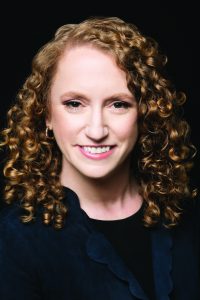The PEN Pod: On Self-Censorship, Book Bans, and Biden’s Virtual Democracy Summit

Photo by Beowulf Sheehan
Every Friday, we discuss tricky questions about free speech and expression with our CEO Suzanne Nossel, author of Dare to Speak: Defending Free Speech for All, in our weekly PEN Pod segment “Tough Questions.” This week, we spoke with Suzanne about PEN America’s Writers on Self-Censorship town hall meeting, which took place this week; how students are vital advocates in the fight against book bans, including PEN America’s upcoming teach-in for students; and President Biden’s virtual Summit for Democracy, as well as China’s response to the summit. Listen below for our full conversation (our interview with Suzanne is up until the 10:21 mark).
On PEN America’s Self-Censorship Town Hall
“The reason we chose to focus on self-censorship is that it is a topic of discussion among writers that I have been hearing more and more about, that people have been writing about—that is uncomfortable, that is multifaceted, that connects with a lot of our public debates, whether it’s overt censorship by government or pressures from the left, in terms of how certain topics like issues of race, and equity and inclusion, are dealt with and talked about, and so, I really wanted to put that on the table with a diverse group of writers to kind of explore this issue.
“There is a continuum between self-censorship and voluntary restraint. Voluntary restraint is something that all of us do all day long. You know, we don’t say everything that comes to mind, we exercise discretion and forethought. We try to avoid offending others for the most part, and that’s healthy and essential. I think one of the reasons our discourse has become so fractious in recent years is a kind of lapsing of voluntary restraint, and a loosening of taboos. So there’s that side of it, which is essential to living together in society, and then there’s—as you move along a continuum, there are forces and pressures that lead to a less benign form of self-restraint, where you cross into self-censorship, where there are viewpoints, opinions, [and] perspectives that people want to air, and believe should be aired, but that they don’t air for fear of reprisal, stigmatization, and other sorts of repercussions. I think that’s where it becomes problematic, and you have whole subject areas that get taken off the table for discussion.”
On How Student Voices Can Help Fight Book Bans
“What we’ve seen over the last several months is this really quickening spate where book bans have become kind of a political tool, and a way of pushing back against what some communities and officials see as a sort of overbearing emphasis on efforts to include diverse perspectives—stories about people of color, about LGBT individuals—it always gets mixed up with material that is sexually explicit.”
“Students are really crucial allies. They have, I think, an instinctive sense of not wanting to be told what they can and can’t read, and not liking the idea of books being withdrawn from a library or classroom shelf. They have a passionate, powerful voice in this, and our goal through this teach-in is to really equip them with the tools, the arguments, the legal grounding, the methods, for how to make their voices heard in these local debates in front of their school board, in front of their principal, their teacher, the librarian, and to exercise their free speech rights—to demand the freedom to read, which is really what’s at stake here.”
On President Biden’s Virtual Summit for Democracy, and China’s Response
“In a way, it’s a mark of the success of the democracy movement that everybody now has to call themselves a democracy, it’s sort of seen as laughable if you don’t—you’re confessing to something improper and illegitimate if you don’t—and so, I think that represents a victory of sorts. But the important thing is that the idea of democracy not be hollowed out, and that this notion that democracy is whatever you want—that it’s iron-fisted, one-party rule by the Chinese Communist Party—that people not be deceived by that. And I think this Summit of Democracy, where there has been an effort to pull together legitimate democracies and draw some lines—which is politically difficult and sensitive—I think that’s really important. It’s a stand on behalf of genuine democracy, not just a term that can be manipulated for any purpose.”






